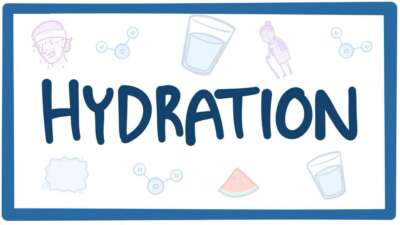
Everybody knows that drinking water is important. But hydration is much more than just drinking water. Hydration is defined as the process of causing something to absorb water. For absorption to occur, it has to happen at the superficial level, as well as the cellular level.
From the lens of East Asian Medicine, the fluids we ingest are “received” by the stomach before undergoing further processes of refinement. A portion of these circulate upward to the face to moisten our ears, eyes, mouth and nasal passages, helping them function well and move outward to provide nourishment to the musculature, skin and to act as sweat.
A secondary portion of our ingested fluids combine with good fats to provide us with healthy hormones, to nourish our reproductive organs and their various fluids, while also supplementing other important substances like cerebrospinal and synovial fluids.
This means that hydration is crucial to consider when it comes to issues such as those that affect our senses like hay fever, dry or irritated eyes or sinuses, muscular health and recovery from injury, immunity, skin, hormonal imbalances and reproductive health.
Adequate hydration helps with allergies in several ways. When you’re body is properly hydrated, the mucus in your nasal passages will remain thin and more fluid, making it easier to expel any pathogens that can be irritating. Proper hydration is also essential for overall immune function, which can help your body better combat allergens. Lastly, dehydration can lead to increased histamine production, so staying hydrated can potentially lessen allergy symptoms.
Regarding pain, staying hydrated can play a vital role in keeping pain levels low. Hydration helps with pain by keeping the joints lubricated, reducing inflammation and maintaining the elasticity of muscles and surrounding tissues. This can alleviate discomfort and pain, particularly in areas like joints and muscles that rely on proper water content to function smoothly. When the body is dehydrated, increased friction and stiffness can be more prevalent, increasing overall pain levels.
Hormonal imbalances are heavily affected by hydration levels. When you’re dehydrated, your liver has a harder time detoxifying your body. Dehydration can also cause your body to overproduce hormones like cortisol, which can increase stress and anxiety. Proper hydration improves blood circulation, which affects how hormones are regulated and also helps insure that hormone production and release occurs smoothly.
So aside from drinking water every day, there are other ways to hydrate and keep the body functioning properly. Here are some that you might consider adding into your daily routine:
1. Eat Warm Wet Meals – Soups, stews, porridges… you name it. These ‘water-soaked’ foods carry water content deeper into the digestive tract where it is absorbed more slowly throughout the day, acting as a time-released form of hydration. Generally, drinking water throughout the day is often processed much faster and higher up in the digestive tract. A warm, wet meal as the first meal of the day is the perfect way to set yourself up for better hydration and health.
2. Limit Hot Drying Foods – Watch your intake of hot or overly drying foods and spices such as chili, garlic, paprika, dried ginger, alcohol and caffeine. Take note of your cooking methods too – how much toasting & roasting, frying and drying are you doing? These spices and cooking methods aren’t inherently bad, but overdoing too much of a good thing can definitely cause problems.
3. Drink Warm Water – Say goodbye to ice. The internal body temperature is pretty warm and consuming cold food or drinks can shock your digestive system and make it work overtime in order to heat this up to an appropriate temperature for absorption. First thing in the morning, before eating breakfast, is an ideal time to drink a glass of warm water. When the digestive tract is empty, the fluids can be received much deeper into the cells and warm water helps to facilitate that absorption.
4. Enrich Your Water – While filtered water helps to remove any toxins, we also need to return some nutrition to our water. This can be in the form of trace minerals and electrolytes. Adding a pinch of organic sea salt into the morning glass of warm water can be very beneficial. There are liquids that contain natural substances that help the body absorb water more deeply. This includes things like mushroom broth, vegetable broth and even bone broth.
5. Support Fluid Metabolism – Gentle exercise, especially walking, helps stimulate the lymphatic system that assists in transporting fluids. So take a little spin around the room if you’re simply sipping from your water bottle at a desk all day. Take note if you feel you’re avoiding consuming water because it sits funny in your stomach or makes you feel nauseous. This can indicate digestive problems that need to be addressed. Also, if you drink a lot of water but still find that you feel thirsty, it is typically an indication that your metabolism may be off or your just not getting fluids into the cells. To help facilitate deeper absorption, consider eating more healthy fats, like avocado, nuts, seeds or fish.
If you’re experiencing issues like regular digestive upset, acid reflux, dry skin, hair or nails, brittle nails, chronic allergy flare ups, hormonal imbalances, cold extremities or chronically tight muscles, you might need some additional help to get the body functioning optimally. This is where East Asian Medicine can be very helpful. Personalized treatments can help you digest and absorb fluids better, reduce heat that’s consuming them and strengthen circulation and digestion. To find out more, please reach out to us.

